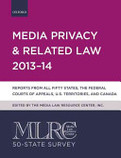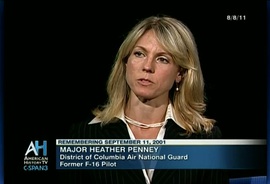....Telephone Recording page for the Justice Network.....
Disclaimer: Justice Network, Neil J Gillespie
Information on this blog or website is a free public service. While the information on this site deals with legal issues, it does not constitute legal advice. If you have specific questions related to information available on this site, you are encouraged to consult an attorney who can investigate the particular circumstances of your situation.
Due to the rapidly changing nature of the law and our reliance on information provided by outside sources, this website does not warranty or guarantee the accuracy or availability of the content on this site or on other sites to which we link.
In no event will this website be held liable to any party for any damages arising in any way out of the availability, use, reliance on or inability to use this website or any information provided by or through this website, or for any claim attributable to errors, omissions or other inaccuracies in, or destructive properties of any information provided by or through, this website.
Neil J. Gillespie:
1. Does not give legal advice.
2. Not a lawyer.
3. Not an attorney.
4. Not licensed to practice law.
5. Did not attend law school.
DynaMetric has been in the telephone recording equipment industry for decades. This expertise has imbued DynaMetric with knowledge about the intricacies of this business.
I have used DynaMetric Call Saver Pro for years, it is a great product and highly recommended. I found it indispensable for accurately obtaining medical information over the phone from doctor’s offices while caring for my Mother with Alzheimer’s disease. See the Harvard Health Letter below for the benefits of recording doctor visits. Check your local recording laws.
Harvard Health Letter
Harvard Health Letter
Harvard Health Letter Volume 29, Number 9, 2004
Tip No. 8: Bring a tape recorder to your office visit. This may seem intrusive, but - especially if you have a serious medical condition like cancer or heart disease that involves complicated
treatment choices -listening to an audiotape after your visit may help you understand things you didn't grasp the first time around. Just refreshing your memory can be helpful. Canadian researchers
published a study of audiotaping visits last year in the Journal of Clinical Oncology. They found that breast cancer patients who listened to an audiotape of their first appointment about
chemotherapy had significantly better recall of having discussed the side effects than did patients who didn't listen to a tape.
Volume 29, Number 9, July, 2004
Harvard Health Letter, July 2004, Vol 29[...]
Adobe Acrobat document [182.2 KB]
My Disclosure - Personal Opinion, Not Legal Advice
All calls on home office business telephone extension (352) 854-7807 are recorded for quality assurance purposes pursuant to the business use exemption of Florida Statutes chapter 934, section 934.02(4)(a)(1) and the holding of Royal Health Care Servs., Inc. v. Jefferson-Pilot Life Ins. Co., 924 F.2d 215 (11th Cir. 1991).
237040363-Paul-Wysopal-FBI-Tampa-Special[...]
Adobe Acrobat document [325.0 KB]
924 F.2d 215 (11th Cir. 1991)
Royal Health Care Servs., Inc. v. Jeffer[...]
Adobe Acrobat document [67.8 KB]
December 30, 2009
2009, 12-30-09, Plaintiff's Notice of Te[...]
Adobe Acrobat document [177.8 KB]
December 29, 2006
2006, 12-29-06, Notice, Mr. Rodems Conse[...]
Adobe Acrobat document [151.5 KB]
James Publishing
Security of Communications (James Publis[...]
Adobe Acrobat document [284.8 KB]
Florida Monitors and/or Records Your Phone Calls - Many Florida government agencies and businesses do!
Office of Governor Rick Scott
(850) 488-7146
There is a distinction between "recording" and "intercepting", see Royal Health Care Servs., Inc. v. Jefferson-Pilot Life Ins. Co., 924 F.2d 215 (11th Cir. 1991). If a telephone legally "intercepts" a call, its subsequent recording may be permitted. The subject of "illegally recorded conversations" vs. one-party consent is often confused with government wiretapping. See my letter May 23, 2014 to the Federal Bureau of Investigation (FBI), Tampa Field Office.
Paul Wysopal Special Agent in
Charge May 23, 2014
Federal Bureau of Investigation, Tampa
5525 West Gray Street
Tampa, FL 33609
Dear Special Agent Wysopal:
Today at 6:20 PM I received a telephone call from 813-253-1000 from a man who identified himself as the Tampa FBI. The caller did not provide his name. The caller asked to speak with Neil Gillespie, that’s me. The caller asked "is this call being recorded" and I said yes. The caller was responding to the Telephone Recording Announcer informing him all calls are recorded for quality assurance purposes. The caller said it is against Florida law to record someone without the consent of both parties. I replied that the caller provided consent if he continued to talk. The caller responded "have a nice day, sir" and hung up. That’s okay, the telephone is not compatible with certain disabilities of mine. I prefer email or written communication.
On information and belief, my long-standing practice of recording telephone calls on a land line is permitted. I am not a lawyer, and I did not attend law school. This is my understanding of the law as it applies to me. This does not constitute legal advice. If you have specific questions related to the information in this letter, you are encouraged to consult an attorney who can investigate the particular circumstances of your concern.
Florida Statutes, Chapter 934, Security of Communications; Surveillance, sometimes called the wiretapping statute, governs the unlawful interception and disclosure of wire, oral, or electronic communications. F.S. § 934.03. There is a significant difference between wiretapping and one or two party consent. Wiretapping is the covert monitoring or recording of telephone conversations by a third party government agency, such as by law enforcement with a court order.
In contrast, one or two party consent is essentially enhanced note-taking by private persons not affiliated with the government. From Wikipedia:
"Under the law of the United States and most state laws, there is nothing illegal about one of the parties to a telephone call recording the
conversation, or giving permission for calls to be recorded or permitting their telephone line to be tapped. However the telephone recording laws in most U.S. states require only one party to be
aware of the recording, while 12 states require both parties to be aware."
http://en.wikipedia.org/wiki/Telephone_tapping
Federal law permits one-party consent to record calls [18 USC § 2511]. One party consent is the law in 38 states. Twelve states, including Florida, require two party
consent. On its face, two party consent is unconstitutional under the Equal Protection Clause of the Fourteenth Amendment to the United States Constitution. The clause, which took effect in 1868,
provides that no state shall deny to any person within its jurisdiction "the equal protection of the laws".
http://en.wikipedia.org/wiki/Equal_Protection_Clause
Two party consent is also unconstitutional under the Supremacy Clause, the provision in Article Six, Clause 2 of the U.S. Constitution that establishes the U.S.
Constitution, federal statutes, and U.S. treaties as "the supreme law of the land". It provides that these are the highest form of law in the U.S. legal system, and mandates that all state judges
must follow federal law when a conflict arises between federal law and either the state constitution or state law of any state.
http://en.wikipedia.org/wiki/Supremacy_Clause
I rely on the holding in Royal Health Care Servs., Inc. v. Jefferson-Pilot Life Ins. Co., 924 F.2d 215 (11th Cir. 1991). In my view Florida law prohibits "interception" of certain communication, but not all recording. The U.S. Eleventh Circuit Court of Appeals has held that because only interceptions made through an "electronic, mechanical or other device" are illegal under Florida law, telephones used in the ordinary course of business to record conversations do not violate the law. In other words, the telephone set "intercepts" the call, not the recording device, and the phone call is lawfully recorded after lawful interception. This is in contrast to a court-ordered wiretap where a call is "intercepted" before it reaches the telephone set. The land-line home office telephone that I use lawfully intercepts a call before lawfully recording the call.
Please find enclosed a copy of Royal Health Care Servs., Inc. v. Jefferson-Pilot Life Ins. Co.
Also enclosed are pages 29 and 30 from Petition No. 12-7747 for writ of certiorari to the Supreme Court of the United States, Neil J. Gillespie v. Thirteenth Judicial Circuit Florida et al.
My petition was denied February 19, 2013, rehearing denied April 15, 2013, see the docket,
http://www.supremecourt.gov/Search.aspx?FileName=/docketfiles/12-7747.htm
Supreme Court review is discretionary. Less than 100 of the approximately 10,000 petitions per Term are granted review. Denial of review is not a judgment on the legal merits of a petition.
The foregoing is only a brief introduction to telephone recording law as it applies to me. Other documents and court filings are available upon request.
I also received the attached letter from Brian J. Nadeau referring me to the Tampa Field Office. I regret that my initial letter to the FBI March 5, 2014 was limited to public corruption. There is a lot more to consider, which I plan to submit shortly. Thank you for your consideration.
Sincerely, Neil J. Gillespie
237040363-Paul-Wysopal-FBI-Tampa-Special[...]
Adobe Acrobat document [325.0 KB]
One-party consent is legal in 38 states
One-party consent is legal in 38 states. "Under the law of the United States and most state laws, there is nothing illegal about one of the parties to a telephone call recording the conversation, or giving permission for calls to be recorded or permitting their telephone line to be tapped. However the telephone recording laws in most U.S. states require only one party to be aware of the recording, while 12 states require both parties to be aware. It is considered better practice to announce at the beginning of a call that the conversation is being recorded." Wikipedia, Telephone taping
Federal law requires that at least one party taking part in the call must be notified of the recording (18 U.S.C. §2511(2)(d)). Wikipedia, Telephone recording laws, United States
18 U.S.C. §2511(2)(d) It shall not be unlawful under this chapter for a person not acting
under color of law to intercept a wire, oral, or electronic communication where such person is a party to the communication or where one of the parties to the communication has given prior consent to
such interception unless such communication is intercepted for the purpose of committing any criminal or tortious act in violation of the Constitution or laws of the United States or of any
State.
While Florida is two-party consent, the business use exemption, F.S. § 934.02(4)(a)(1), and the holding of Royal Health Care Servs., Inc. v. Jefferson-Pilot Life Ins. Co., 924 F.2d 215 (11th Cir. 1991), provide for lawful interception and recording. Florida’s two party consent law conflicts with the US Fourteenth Amendment and the Equal Protection Clause and one party consent states. Florida’s two party consent law is also in conflict with one party consent federal law, 18 U.S.C. §2511(2)(d), and the Supremacy Clause of the U.S. Fourteenth Amendment. See my letter to Attorney General Pam Bondi August 1, 2012.
Scribed Collection, One-party consent 18 USC 2511(2)(d)
2511. Interception and disclosure of wir[...]
Adobe Acrobat document [31.7 KB]
102656505-Letter-to-AG-Pam-Bondi-Eugene-[...]
Adobe Acrobat document [3.4 MB]
Security of Communications, Chapter 934, Florida Statutes
Security of Communications 2011
Chapter 934, Florida Statutes (2011)
934.01(3) Organized criminals make extensive use of wire and oral communications in their criminal activities. The interception of such communications to obtain evidence of the commission of crimes or to prevent their commission is an indispensable aid to law enforcement and the administration of justice.
Chapter 934, Florida Statutes 2011
Security of Communications (2011)
Chapter 934, Florida Statutes 2015
Security of Communications; Surveillance (2015)
Florida Attorney General, Advisory Legal Opinion - AGO
97-16
Subject: Law enforcement agency, interception of telephone calls
- Royal Health Care Servs., Inc. v. Jefferson-Pilot Life Ins. Co., 924 F.2d 215 (11th Cir. 1991)
- State v. News-Press Pub. Co., 338 So. 2d 1313 (1976)
- Stevenson v. State, 667 So.2d 410 (Fla. Dist. Ct. App. 1996)
- Paredes v. State, 760 So.2d 167 (Fla. Dist. Ct. App. 2000)
Advisory Legal Opinion - Law enforcement[...]
Adobe Acrobat document [26.6 KB]
Chapter 934, Florida Statutes, Security [...]
Adobe Acrobat document [260.6 KB]
924 F.2d 215 (11th Cir. 1991), Royal Hea[...]
Adobe Acrobat document [67.8 KB]
State v. News-Press Pub. Co., 338 So. 2d[...]
Adobe Acrobat document [49.4 KB]
PAREDES v STATE, 760 So.2d 167 (Fla. Dis[...]
Adobe Acrobat document [91.2 KB]
Recording Telephone Conversations and Communications in Florida
Florida Criminal Law Blog
Posted On: May 30, 2009 by Jim Jenkins
selected portions and cases
In Cohen Brothers, LLC v. ME Corp., S.A., 872 So.2d 321 (Fla. 3rd DCA 2004), the District Court of Appeal for the Third District of Florida held that members of a limited liability company’’s (LLC) management committee did
not have a reasonable expectation of privacy with respect to participation in telephone conference calls with other committee members to discuss continued financing of the LLC, and thus could not
hold the committee members liable for recording the conference calls.
In State v. Inciarrano, 473 So. 2d 1272 (Fla.
1985), the Florida Supreme Court held that there may be circumstances under where a reasonable expectation of privacy will not be justified. The concurring opinion
points out that the majority opinion holds that if someone is committing a crime they do not have a privacy right. This particular defendant, Inciarrano, went into someone's business and shot and
killed them and the entire event was being recorded by the victim without the defendant’s knowledge. The Court held the tape to be admissible at trial which led to the defendant’s conviction for
murder.
The Eleventh Circuit federal appellate court that governs federal law in Florida has held that because only interceptions made through an ""electronic, mechanical or
other device"" are illegal under Florida law, telephones used in the ordinary course of business to record conversations do not violate the law. The court found that business telephones are not the
type of devices addressed in the law and, thus, that a life insurance company did not violate the law when it routinely recorded business-related calls on its business extensions. Royal Health Care Servs., Inc. v. Jefferson-Pilot Life Ins. Co., 924 F.2d 215 (11th Cir. 1991).
ME CORP. SA v. Cohen Brothers LLC, 292 A[...]
Adobe Acrobat document [20.7 KB]
Federal law
Scope of 18 U.S.C § 2511 Prohibitions, DOJ CR Manual 1050
Report for Congress, Order Code 98-326 (86p)
Privacy: An Overview of Federal Statutes Governing Wiretapping and Electronic Eavesdropping, Updated January 13, 2003
Privacy: An Overview of the Electronic Communications Privacy Act (91p), Congressional Research
Service, October 9, 2012
Charles Doyle, Senior Specialist in American Public Law
Is it Legal to Record the Bank’s Phone Call or Conversation?
Gregory Smith v. U. S. Department of Justice
United States Court of Appeals, DC Circuit
1050. Scope of 18 U.S.C § 2511 Prohibiti[...]
Adobe Acrobat document [32.4 KB]
2511. Interception and disclosure of wir[...]
Adobe Acrobat document [31.7 KB]
Report for Congress, Order Code 98-326.p[...]
Adobe Acrobat document [461.4 KB]
Congressional Research Service R41733.pd[...]
Adobe Acrobat document [856.3 KB]
United States Court of Appeals, DC Circuit
00-5211a.pdf
Adobe Acrobat document [20.1 KB]
Privacy: Wiretap Act
The Wiretap Act regulates the collection of actual content of wire and electronic communications. Codified in 18 U.S.C. §§ 2510-2522, the Wiretap Act was first passed as Title III of the Omnibus Crime Control and Safe Streets Act of 1968 and is generally known as "Title III". Prior to the 1986 amendment by Title I of the ECPA, it covered only wire and oral communications. Title I of the ECPA extended that coverage to electronic communications.
18 U.S. Code Chapter 119 - WIRE AND ELECTRONIC COMMUNICATIONS INTERCEPTION AND INTERCEPTION OF ORAL COMMUNICATIONS
18 U.S.C. §§ 2510-2522 (18 USC Chapter 119)(GPO PDF)
USCODE-2010-title18-partI-chap119 PDF.pd[...]
Adobe Acrobat document [135.5 KB]
Privacy_ Wiretap Act - Internet Law Trea[...]
Adobe Acrobat document [41.0 KB]
MLRC 50-State Survey: Media Privacy and Related Law 2013-14
Updated and published annually, the Media Law Resource Center and Oxford University Press have partnered to produce valuable, easy-to-use 50-State Survey compendiums of the law in all U.S. jurisdictions, state and federal, that are used by journalists, lawyers and judges, and law schools nationwide. Each state's chapter, prepared by experts in that jurisdiction, is presented in a uniform outline format. Topics covered in Media Privacy and Related Law 2013-14 include: False Light, Private Facts, Intrusion, Eavesdropping, Hidden Cameras, Misappropriation, Right of Publicity, Infliction of Emotional Distress, Prima Facie Tort, Injurious Falsehood, Unfair Competition, Conspiracy, Tortious Interference with Contract, Negligent Media Publication, and Relevant Statutes.
Reporter’s Committee Recording Guide
This guide is meant as a general introduction for journalists to the state of the law concerning electronic recording and its implications. It does not take the place
of legal advice from a lawyer in your state when you are confronted with a legal problem.
Because this guide was written with the needs of journalists in mind, it does not address all aspects of electronic recording laws, including the issues of taping family
members’ calls and using a tape recording as evidence in a lawsuit or prosecution.
Others who have questions about taping should contact a local attorney directly. Read more
Reporters Committee For Freedom of The Press
RECORDING.pdf
Adobe Acrobat document [1.2 MB]
Scope of 18 U.S.C § 2511 Prohibitions, DOJ CR Manual 1050
Section 2511 of Title 18 prohibits the unauthorized interception, disclosure, and use of wire, oral, or electronic communications. The prohibitions are absolute, subject only to the specific exemptions in Title III. Consequently, unless an interception is specifically authorized, it is impermissible and, assuming existence of the requisite criminal intent, in violation of 18 U.S.C. § 2511.
Section 2511(1)(a) is a blanket prohibition against the intentional interception, endeavor to intercept, or procurement of another person to intercept or endeavor to intercept any wire, oral, or electronic communication.
Section 2511(1)(b) is applicable only to oral communications. It is less pervasive than the prohibition against the interception of oral communications contained in Section 2511(1)(a) and was included because of a question "concerning the constitutionality of Section 2511(1)(a) as it relates to oral communications." See S.Rep. No. 1097, 90th Cong., 2d Sess. 92 (1968); United States v. Burroughs, 564 F.2d 1111, 1115 (4th Cir. 1977). The Criminal Division recommends that Section 2511(1)(b) should be charged in cases involving interception of oral communications. However, although the interception of an oral communication may violate both 2511(1)(a) and (b), a person may be convicted of only one offense under the section. See S.Rep. No. 1097, 90th Cong., 2d Sess. 93 (1968).
Section 2511(1)(c) and (d) of Title 18 provide additional penalties for the disclosure and use of illegally intercepted communications. The use or disclosure must be accompanied by knowledge or reason to know that the information concerned was obtained through an interception which violated 18 U.S.C. § 2511(1). The knowledge element can be satisfied either when the subject has actual knowledge or when the occurrence of the element "can reasonably be foreseen." Pereira v. United States, 347 U.S. 1, 9 (1954).
Section 2511(1)(e) was added as one of the miscellaneous provision in the Violent Crime Control and Law Enforcement Act of 1994. It specifically prohibits (i) intentional disclosure of the contents of a wire, oral or electronic communication, intercepted by certain authorized procedures, (ii) knowing or having reason to know that the information was obtained through interception of such a communication in connection with a criminal investigation, (iii) having obtained or received the information in connection with a criminal investigation, and (iv) with intent to improperly interfere with a duly authorized criminal investigation.
Once the contents of an intercepted communication have become "public information" or "common knowledge," disclosure or use of the contents of the communication is no longer prohibited. See S.Rep. No. 1097, 90th Cong., 2d Sess 93 (1968).
1050. Scope of 18 U.S.C § 2511 Prohibiti[...]
Adobe Acrobat document [32.4 KB]











































































































































